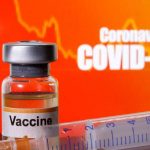Pfizer has secured the Breakthrough designation for its RSV vaccine RSVpreF this week. The US FDA has granted RSVpreF this coveted status base on a phase 2b proof of concept study. This also comes at a time when GSK, another player in this segment has faced a setback after the safety assessment of its vaccine. This clearly gives an advantage to Pfizer when it comes to market positioning and commercialization. RSVpreF is developed for the prevention of RSV-associated lower respiratory tract illness in infants from birth up to six months. Immunization of pregnant women may be advised to prevent respiratory syncytial virus infection in the newborn infants.
What is Respiratory Syncytial Virus (RSV) Infection
CDC classifies RSV as a common respiratory virus. It is manifested through mild cold like symptoms. Even though most of the people infected by the Respiratory Syncytial Virus recover in a couple of weeks, it can be serious in some infants. RSV can be more severe in infants when compared to adults infected by it. Estimates suggest that more than fifty thousand children below the age of five years require hospitalization, every year, in the United States alone. Premature infants and infants younger than six months are at high risk. RSVpreF precisely targets prevention in such age groups. Severe RSV infection can potentially cause serious respiratory conditions like Bronchiolitis and Pneumonia. Early symptoms of this infection may include cough, runny nose and reduced appetite. In very young infants, it can also be identified through irritability while apnea is a clear warning sign. There are no advance medications or vaccines available to effectively treat or prevent RSV. Palivizumab is one of the commonly used medicines for infantile RSV injections right now. This requires careful assessment of other heart and lung conditions before administering. RSVpreF can potentially fill this void, leading to better prevention and reduced infant hospitalizations.
An overview of respiratory disorders in infants
Infant mortality due to respiratory disorders has been a great cause of concern for neonatologists. Premature birth is the leading risk factor among other known reasons including birth weight. Apnea of prematurity also remains to be a major concern, requiring oxygen and ventilator support. Mild apnea can be treated with immediate care and medical attention. However, severe episodes of apnea will have a very long term impact. RSV related apnea is very common and requires close monitoring and care. A vaccine ultimately preventing such infantile disorders is desirable in the context of neonatal disease management. Conditions like bronchopulmonary dysplasia, childhood interstitial lung disease, pneumonia and pleural disorders are well-known respiratory disorders in premature infants. Conditions caused due to Respiratory Syncytial Virus may be prevented by active immunization of the pregnant women.
























